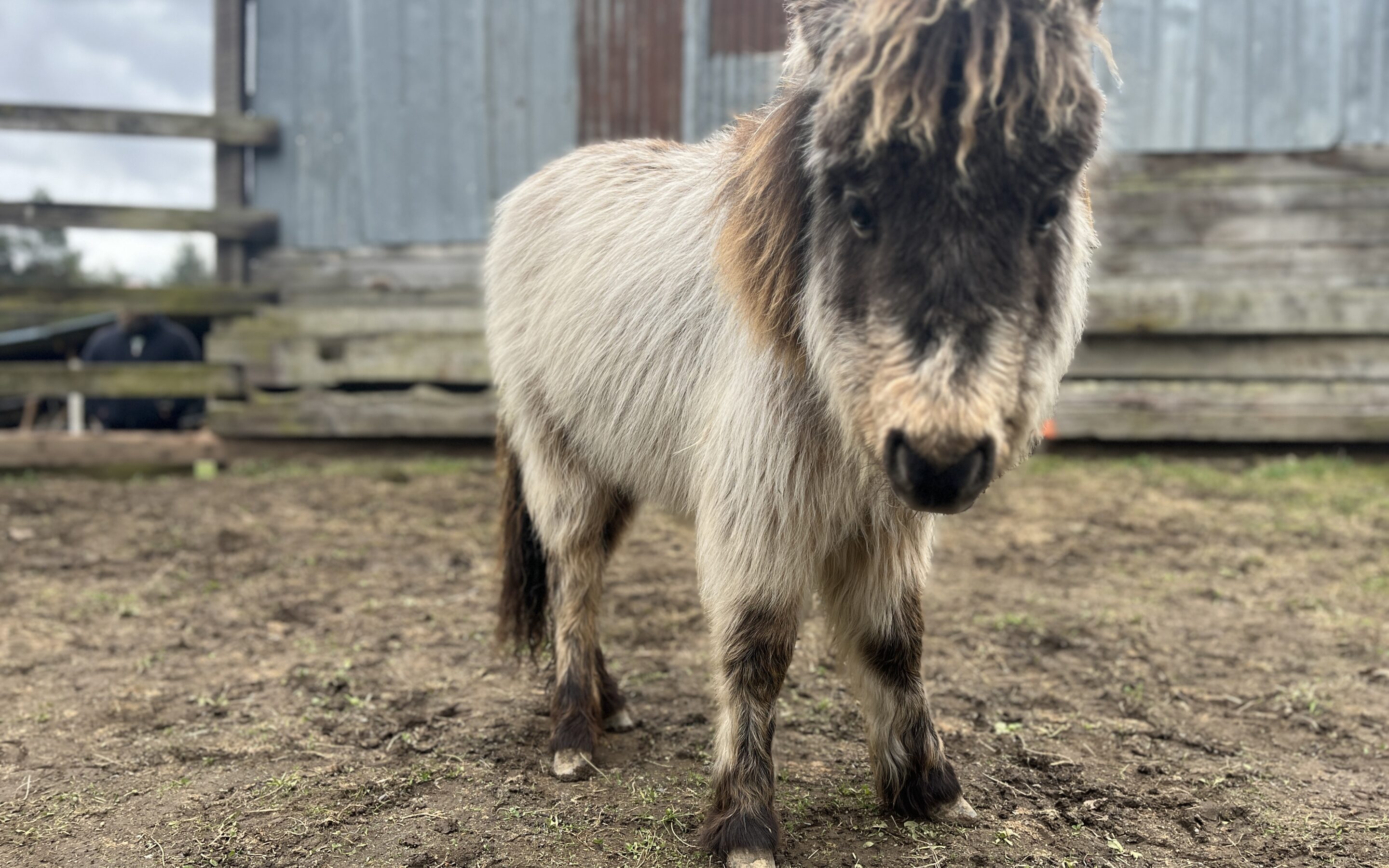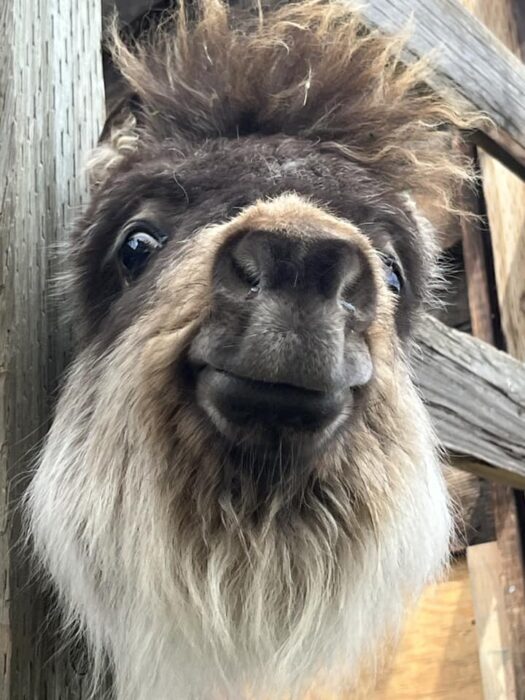Horses contain multitudes: they can be regal, majestic, brave, goofy, beautiful… the list goes on. But I would argue that most full-size horses don’t usually conjure the word ‘cute.’ Mini horses, on the other hand, are the epitome of ‘cute.’ And if there is an even stronger version of that word, I would argue that Pippin would be the definition.
Pippin, or Pip as she is colloquially known, is a miniature horse filly who came to SAFE as part of an animal control seizure. Well, when I say came to SAFE, I should really clarify and say that while she came under SAFE’s care, she went straight from her first location to our good friend Sarah V’s house to foster. We were full up on horses here at the barn, so were so grateful that we have such an amazing connection who was able to step in and offer plenty of phenomenal TLC to this little sweetie.
And it turned out that Pip was in need of a bit more TLC than most. She came to us not in the best of shape, in need of some calories and generally just quite shut down. At her initial vet visit, our vet felt that she looked a bit ataxic, possibly from lack of nutrition and muscling, or possibly a little neurologic. A vitamin E deficiency could also be a cause. They drew blood, and found that while her selenium and vitamin E levels were in normal range, there were multiple indicators that there was something amiss with her liver. We started her on milk thistle, which was recommended by our vets, and has historically helped increase liver functionality.
After some time on the milk thistle, and with some groceries on board, little Pip got her liver values rechecked. Things were looking better, but still not 100% — some of her chemistry was indicative of strange abnormalities, certain low and high levels that could indicate infection and some muscle damage. While she was physically improving outwardly, brightening up and generally more lively, there was still something going on internally that required further investigation.
So we asked for a second opinion, consulting with an internal medicine specialist, who told us that Pip’s bloodwork showed signs of chronic infection. He said her liver looked like it had improved some, but based on some of her values, it was possible she could still be having some sort of an issue there. He recommended more advanced testing, or ultrasounding the liver to see if more could be discovered. And indeed, a subsequent ultrasound of the liver revealed what looked to be an abscess. There are a number of things that could have caused it: previous parasite migration into the liver, toxicity from something she tried to eat while she was starving, or an ascending infection from the portal vein due to something like a colic episode. He prescribed a course of doxycycline (antibiotic) and a recheck ultrasound in about a month.
It has been nice to get some clarity on what is going on with Pippin, and we are eagerly awaiting her next ultrasound to hopefully reveal positive changes. But in the meantime, Pip is still managing to enjoy what life has to offer now that she is safe, doing all the things a baby horse should do: running around, taking naps in the sun, getting lots of good pets and brushes, and never having to worry about if she will be cared for or loved ever again. Welcome to the SAFE family, Pip!



